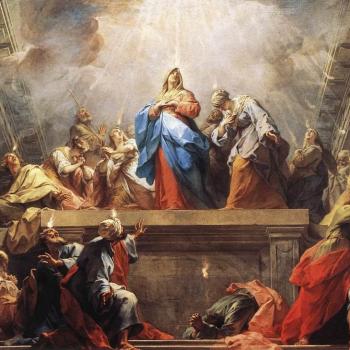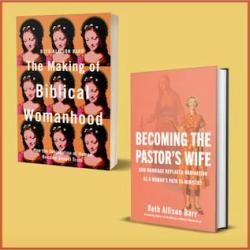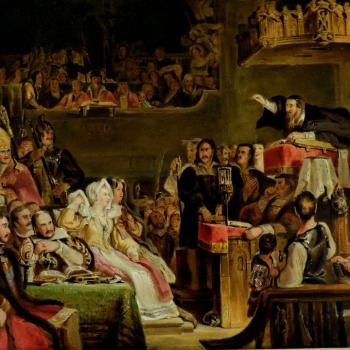More than a half-century ago, the great church historian Jaroslav Pelikan described the Reformation as a “tragic necessity.” At least among a certain wing of Protestant theologians and academics, the phrase has stuck.
Last year in an essay for First Things, Timothy George offered his thoughts on the tragedy and necessity of the Reformation. For George and for many Christians, what is most tragic about the Reformation is its contribution to the visible disunity of Christ’s church. “All Christians repeat Jesus’s prayer for the unity of his church,” George states, “and yet who can deny the open scandal of the followers of Jesus excluding one another from the Lord’s Table.” George also suggests that Christian disunity mutes the church’s witness and its attempt to bring others into the Kingdom of God. Disunity is “dys-evangelical.”
George, of course, proceeds to discuss not only the necessity of the Reformation, but its theological contributions and its place within the broader intellectual ferment and climate of reform that characterized the late-medieval church in Western Europe. As far as I’m concerned, Bach alone might have been worth a Reformation.
Certainly, one could lay many baleful future developments at the feet of Luther, Calvin, and many other reformers and their political supporters. The destruction of beautiful churches and works of art. Wars between Protestants and Catholics. Not just a few skirmishes, but the Thirty Years War. A long chain of intellectual events that led to — in Max Weber’s formulation — the disenchantment of the western world. The catalyzing event for secularism and moral confusion.
In this post, I simply want to respond to the notion that institutional divisions are necessarily tragic. In so doing, I do not disagree with Mark Noll and my co-blogger Tal Howard that “Protestants are duty-bound to try to understand the tragic dimensions of the Reformation.” We are. And I certainly think Protestants should have no illusions about the many tragedies involved in the many reformations of the sixteenth century and beyond.
At the same time, I feel no sense of regret over the split of Christians from Rome.
There are several reasons why I do not consider this a tragedy.
First and foremost, there was no good reason for the primacy of the Bishop of Rome in the first place. Jesus bestowed the keys of the kingdom on Peter, but it seems clear from the Book of Acts and the Pauline epistles that Peter hardly exercised anything like papal authority in the early church. The historical evidence for Peter becoming the first bishop of Rome (or even being in the city) is unconvincing to one not already convinced. While Protestants obviously sundered the institutional unity of the Western church, it was a sort of unity unauthorized by scripture and unwarranted by the circumstances of the early church. (It also seems snarky but necessary to mention that Rome bore considerable responsibility for the Great Schism between East and West that preceded the Reformation by a half-millennium).
Second, it is not at all clear to me that Jesus’s prayer for Christian unity means that Jesus wanted his church to have an institutional, hierarchical unity along the lines of either the late-medieval or contemporary Catholic Church. The Book of Acts suggests that the apostles in Jerusalem exercised a measured primacy among early Christians, but for the most part Christianity spread around the Mediterranean world and to the East in a way that fostered local autonomy and diversity. This diversity of theologies and even collections of scripture alarmed many Christians, some of whom identified many strands of Christianity as heresy. By the fourth century, newly tolerated and then established Christianity sought to impose theological order on this chaos. The result was the institutionally useful but not terribly New Testament idea that all Christians had to have essentially the same understanding of Jesus Christ and of the relationship among the members of the Trinity. Getting at least most Christians to assent to the fourth- and fifth-century creeds took a considerable amount of viciousness and sometimes violence.
Third, Protestant reformers, like their Catholic counterparts, accepted the authority of the ecumenical councils and often responded harshly to competing forms of theological dissent, but in the long run the Reformation blew the lid off of a never fully successful attempt at enforced theological conformity. The Reformation gradually returned Christianity in many parts of the world to the theological and institutional diversity of the early church.
Fourth, rather than muting the witness of the gospel, the proliferation of Protestant churches and sects has been rather good for the remarkable spread of Christianity in the Global South. It is undoubtedly true that the remarkable array of Christians options is confusing, and not only to prospective converts to Christianity. It is also true that in many settings, different Protestant movements have fiercely competed with both the Catholic Church and with each other in ways contrary to Jesus’s prayer for unity. At the same, I find it hard to accept that the visible disunity of Christ’s church has muted its witness.
Fifth and finally, I think Christians of all sorts would concede that spiritual unity can thrive in the midst of institutional diversity and that institutional unity does not preclude actual disunity. Witness the infighting within both Protestant denominations and the Catholic Church, and witness also the considerable common ground that Protestants and Catholics have found in recent decades.
There undoubtedly were many tragic outcomes of the Protestant reformations, but the sheer existence of many different churches and denominations is not one of them. How Christians conduct themselves amid institutional, theological, and cultural diversity is a far more important component of Christian unity.













